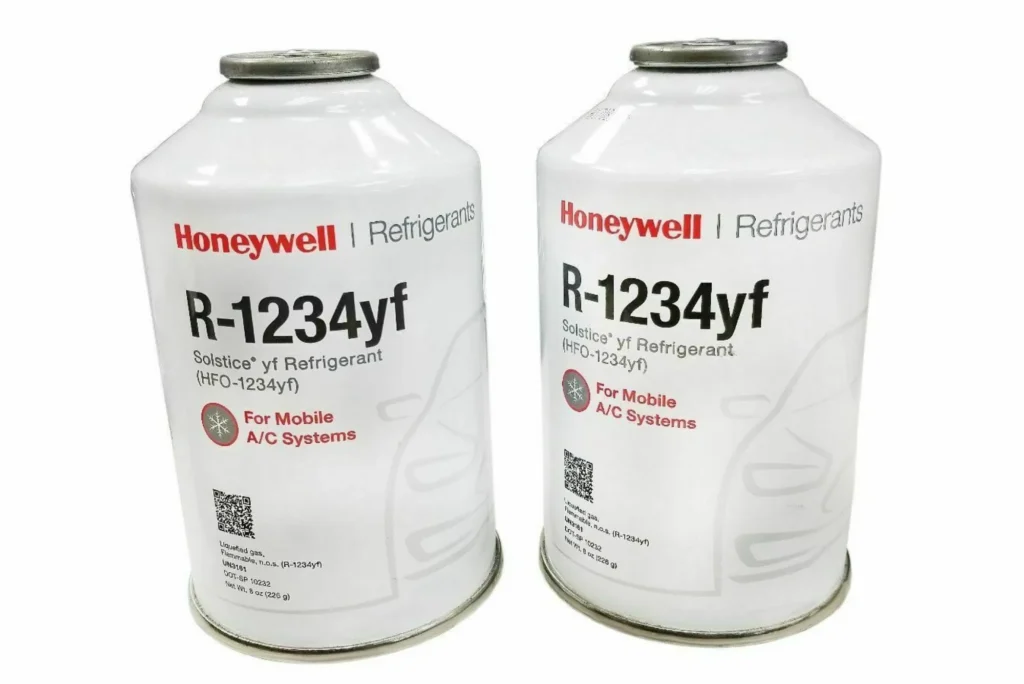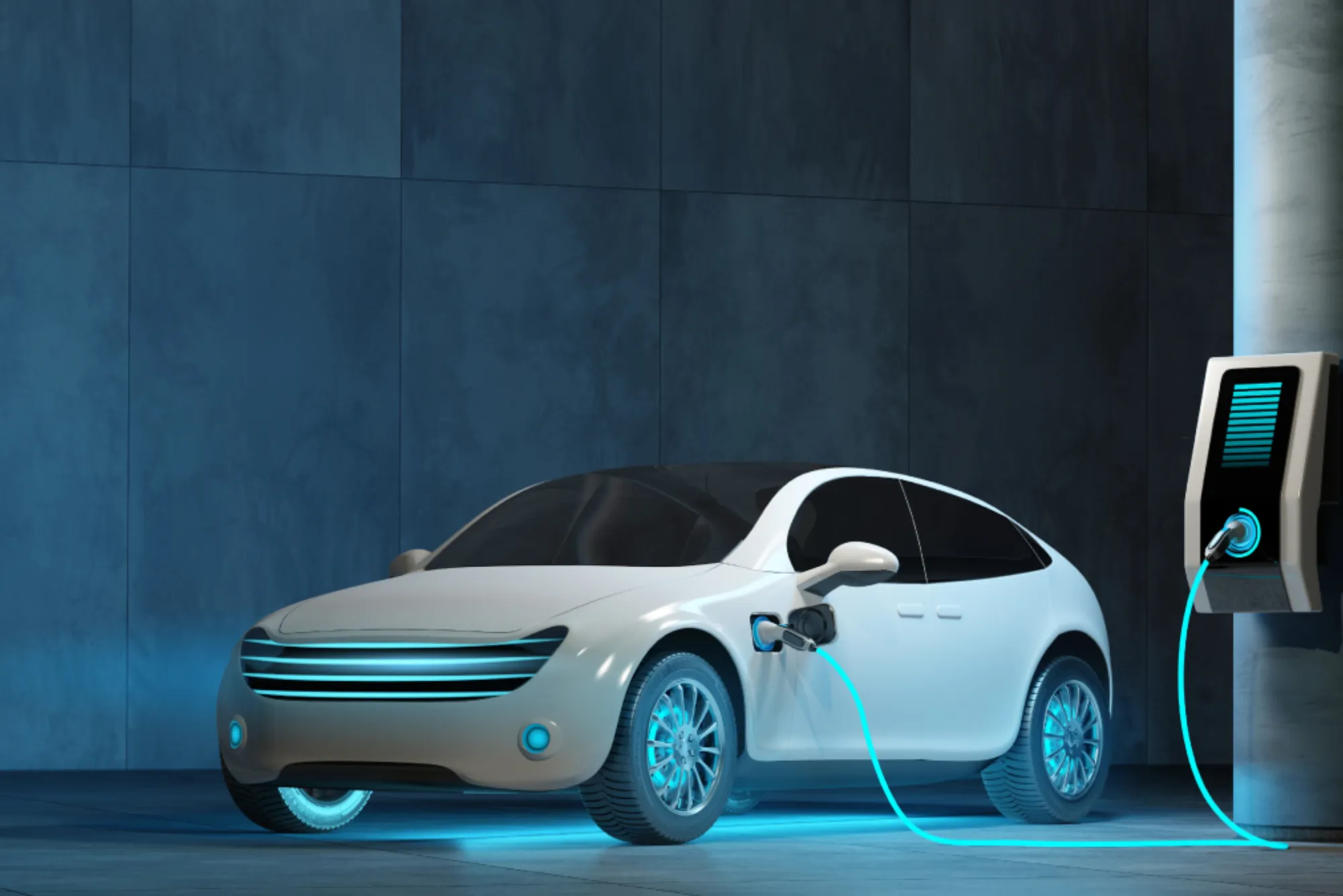Electric vehicles (EVs) have been at the forefront of a shift toward greener transportation options, offering a solution to reduce carbon emissions and reliance on fossil fuels. As EVs continue to grow in popularity, it’s essential to consider the components that make these vehicles both efficient and safe. One such component is the refrigerant used in the vehicle’s air conditioning system. Traditionally, automotive air conditioning systems used R134a refrigerant, but with increased focus on environmental concerns, a new refrigerant has entered the scene: R1234yf. This raises the question: Are electric cars using a flammable 1234yf refrigerant?
R1234yf is an environmentally friendly refrigerant that is gaining traction due to its lower Global Warming Potential (GWP) compared to older refrigerants. However, one of the significant concerns about R1234yf is its flammability. This article explores the use of R1234yf in electric vehicles, how it compares to older refrigerants, and the safety measures in place to manage its flammability.
Understanding R1234yf Refrigerant
R1234yf is a refrigerant that belongs to the hydrofluoroolefin (HFO) family. It was introduced as an alternative to R134a, which was commonly used in vehicle air conditioning systems. The push for R1234yf came in response to global regulations aimed at reducing the impact of refrigerants on the environment. Unlike R134a, which has a high Global Warming Potential (GWP), R1234yf has a much lower GWP, making it a much better option for reducing the environmental impact of vehicles.

However, the introduction of R1234yf came with concerns due to its mild flammability. According to the American Society of Heating, Refrigerating and Air-Conditioning Engineers (ASHRAE) standards, R1234yf is classified as an A2L refrigerant, meaning it is mildly flammable under certain conditions. This raises questions about its safety in the event of an accident, particularly in electric cars, where the air conditioning system is powered by the vehicle’s battery.
Is R1234yf Refrigerant Dangerous?
The primary concern with R1234yf refrigerant is its flammability. While it is classified as mildly flammable, it is essential to understand that the refrigerant’s flammability only becomes a risk under specific circumstances. For example, R1234yf requires an ignition source and specific conditions to ignite. This makes it much less dangerous than many other substances that are more easily ignitable.
In electric vehicles, the amount of refrigerant used in the air conditioning system is relatively small, reducing the overall risk in case of a leak. The flammability of R1234yf is also mitigated by the fact that the air conditioning system in electric vehicles is sealed and designed to prevent leaks. Additionally, modern electric vehicles are equipped with various safety mechanisms to ensure that any risks associated with the refrigerant are minimized.
Vehicle manufacturers have implemented several strategies to address concerns about R1234yf’s flammability. These include advanced leak detection systems, reinforced refrigerant lines, and the use of stronger materials for the air conditioning system. These safety features are designed to contain the refrigerant in case of a leak and ensure that the vehicle remains safe under various conditions.
The Role of R1234yf in Electric Vehicles
R1234yf has become the refrigerant of choice for electric vehicles due to its environmental benefits. As electric vehicles are already designed with energy efficiency in mind, using a refrigerant that has a low GWP further enhances the vehicle’s sustainability. R1234yf is not only better for the environment, but it also performs well in EV air conditioning systems, providing effective cooling without significantly draining the vehicle’s battery.
Since air conditioning systems are one of the most energy-consuming components of an electric vehicle, it is important for manufacturers to use refrigerants that offer both cooling performance and energy efficiency. R1234yf meets these criteria, helping to maintain the comfort of the vehicle’s occupants without sacrificing the car’s driving range.
Moreover, R1234yf is compatible with the existing air conditioning systems in electric vehicles, making the transition to this new refrigerant relatively seamless. This compatibility allows manufacturers to make the switch to a more environmentally friendly refrigerant without significant changes to their vehicle’s overall design or performance.
Safety Measures for R1234yf Refrigerant
Although R1234yf is flammable, manufacturers have taken extensive safety measures to mitigate any potential risks. One of the key safety features is the design of the refrigerant system itself. The air conditioning systems in modern electric vehicles are built with reinforced refrigerant lines that are less likely to leak or be damaged during an accident. In the event of a leak, vehicles are equipped with advanced sensors that detect refrigerant and alert the driver, allowing for timely repairs.

Additionally, the air conditioning system is placed strategically within the vehicle to ensure that the refrigerant remains contained, even in the event of a collision. Manufacturers follow strict industry standards for refrigerant safety, including those set by the Society of Automotive Engineers (SAE) and other global organizations. These standards ensure that the air conditioning system is safe to use, even with a refrigerant that is mildly flammable.
Furthermore, automakers test their vehicles rigorously to ensure that the refrigerant systems can withstand various accident scenarios without compromising the vehicle’s safety. This includes testing for the possibility of refrigerant leaks and ensuring that the refrigerant will not ignite in case of an accident.
What Does the Future Hold for EV Refrigerants?
The use of R1234yf in electric vehicles is a step in the right direction towards reducing the automotive industry’s carbon footprint. However, as the demand for even more sustainable vehicles continues to grow, researchers are already working on alternative refrigerants that could offer even lower environmental impacts and improved safety. One such alternative is carbon dioxide (CO2), which is non-flammable and has a significantly lower environmental impact than both R134a and R1234yf.
While it is still early days for alternative refrigerants like CO2, it is likely that future electric vehicles will increasingly use such refrigerants as they become more practical and affordable. In the meantime, R1234yf will continue to be the standard refrigerant for most electric vehicles, thanks to its balance of environmental benefits, performance, and safety.
People Also Ask
Q: What is R1234yf refrigerant?
R1234yf is a refrigerant used in modern vehicle air conditioning systems, offering a low global warming potential (GWP) compared to older refrigerants like R134a.
Q: Is R1234yf refrigerant flammable?
Yes, R1234yf is classified as mildly flammable. However, the risk is minimized by the design of the air conditioning systems and safety features in electric vehicles.
Q: Why is R1234yf used in electric cars?
R1234yf is used in electric cars because it has a low GWP, making it more environmentally friendly while maintaining efficient cooling performance.
Q: How safe is R1234yf in electric vehicles?
R1234yf is safe in electric vehicles due to robust safety measures such as leak detection, reinforced refrigerant lines, and advanced vehicle design that minimizes risks.
The question of whether electric cars use a flammable 1234yf refrigerant is one that has garnered attention, especially with increasing concerns about safety and the environment. While R1234yf is indeed flammable under certain conditions, the refrigerant is generally considered safe for use in electric vehicles. Manufacturers have implemented a range of safety measures, including leak detection systems, reinforced refrigerant lines, and vehicle designs that prevent refrigerant leaks and mitigate any associated risks.
R1234yf also provides significant environmental benefits, with its low global warming potential helping to reduce the carbon footprint of electric vehicles. As electric vehicles continue to evolve, it is likely that even more sustainable refrigerant technologies will emerge, but for now, R1234yf remains the standard choice for most EVs. With appropriate safety features in place, R1234yf is a practical and safe refrigerant for the air conditioning systems of electric cars, ensuring both environmental sustainability and user safety.





